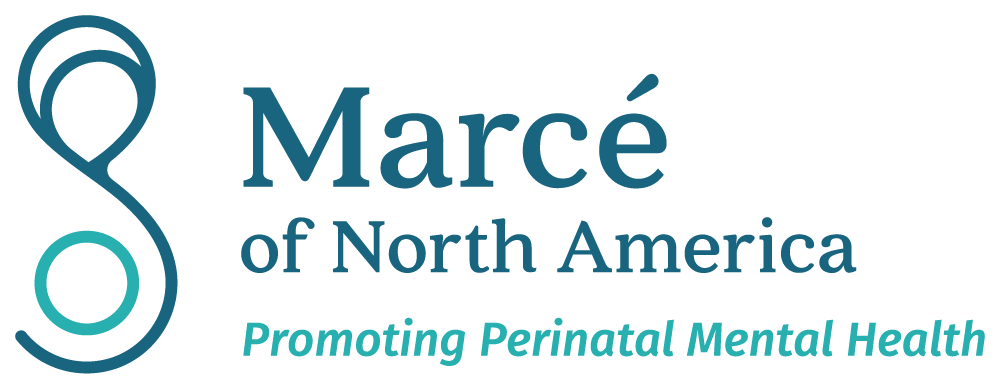Marce of North America (MONA) is a scientific association with more than 400 members from across North America dedicated to improving the mental well-being of pregnant and postpartum women and birthing people, and their families, through health, science, and compassion.
MONA BOARD OF DIRECTORS - COMMENTARY ON SSRI USE IN PREGNANCY
Perinatal mental health is a critical and often overlooked component of maternal and infant well-being. Studies indicate that up to one in five individuals experience depression and anxiety during pregnancy and the first year postpartum, yet a staggering number of those affected remain untreated. This gap in care represents a significant public health crisis, as untreated perinatal mental illness poses substantial risks to both the birthing person and their offspring. Therefore, a steadfast commitment to universal screening, timely diagnosis, and evidence-based, individualized treatment is a clinical and ethical imperative.
The consequences of undiagnosed and untreated perinatal mental health disorders are severe and farreaching. Suicide is a leading cause of death for childbearing persons in the year following delivery, underscoring the life-threatening nature of these conditions. Untreated depression and anxiety in pregnancy are associated with a range of adverse maternal and obstetric outcomes, including high-risk pregnancies, preeclampsia, preterm birth, and inadequate maternal weight gain. Furthermore, individuals suffering from these disorders are more likely to engage in unhealthy behaviors, such as substance use and poor nutrition, and may experience impaired maternal-infant bonding, which has long-term implications for child development. For the infant, the risks of untreated perinatal depression and anxiety are equally profound. These conditions are linked to an increased likelihood of preterm birth and small for gestational age size. Long-term consequences can include developmental delays and an increased risk for future behavioral and emotional problems. Therefore, ensuring that individuals receive timely and effective treatments throughout pregnancy and postpartum is critical.
Identifying perinatal mental health disorders is the essential first step toward ensuring people get evidence-based treatments. Most leading medical organizations recommend screening for depression and anxiety during the perinatal period, with swift referral for diagnostic assessment and treatment for symptomatic individuals. Treatment options for depression and anxiety in pregnancy and postpartum include therapy (e.g., cognitive behavior therapy) and medication. While some individuals will respond to therapy alone, others will require medication to maintain wellness or prefer medication. The decision to use psychotropic medication during pregnancy requires a careful and collaborative risk-benefit analysis. The conversation must be framed not as a choice between risk and no risk, but as a weighing of the risks of treatment against the well-documented risks of untreated illness.
Selective Serotonin Inhibitors (SSRIs) are the most commonly used medications for depression and anxiety in pregnancy. Extensive research has provided a nuanced understanding of the potential risks associated with SSRI use in pregnancy.
In summary:
• Congenital Malformations: Meta-analyses have found no association between prenatal SSRI exposure and the overall risk of birth defects. While isolated studies have suggested a small, increased risk of specific cardiac malformations with certain SSRIs (e.g., paroxetine, fluoxetine), this has not been consistently replicated, and the absolute risk remains very low. August 19, 2025
• Persistent Pulmonary Hypertension of the Newborn (PPHN): Early concerns about a link between late-pregnancy SSRI exposure and PPHN have been tempered by conflicting subsequent studies. While a small absolute risk may exist (approximately 1-2 additional cases per 1,000 live births), this must be balanced against the significant risks of untreated maternal depression.
• Neonatal Adaptation Syndrome (NAS): A transient syndrome characterized by symptoms like jitteriness, irritability, and respiratory distress has been reported in some infants exposed to SSRIs late in pregnancy. These symptoms are typically mild and resolve within days to weeks without intervention.
• Preterm Birth and Low Birth Weight: While some research has suggested a link between SSRIs and preterm birth and low birth weight, this is likely related to the underlying disorder, and not the medication. SSRIs are not believed to cause a clinically significant increased risk of these outcomes.
• Neurodevelopmental Outcomes: While concerns have previously been raised about SSRIs and neurodevelopmental outcomes in children (e.g., autism spectrum disorder and attention deficit hyperactivity disorder), research has shown that the risk is likely to be mostly attributable to the underlying mental illness and shared genetic risk, not related to SSRI exposure. The principal clinical objective is to minimize infant exposure to the risks of both the unmedicated perinatal mental health disorder and the psychiatric medication. For many individuals, especially those with moderate to severe or recurrent illness, the benefits of continuing effective medication outweigh the potential risks.
In conclusion, perinatal mental health disorders such as depression and anxiety are common, consequential, and treatable. Failure to identify and treat these conditions carries profound consequences for maternal mortality and morbidity, and for the short- and long-term health of the child. While treatment decisions, particularly concerning medication, are complex, they must be guided by a balanced assessment of the risks of action versus inaction. Through universal screening, shared decision-making, and individualized treatment plans that may include psychotherapy, medication, or both, the healthcare system can better protect the well-being of two generations.
References and Resources
American College of Obstetricians and Gynecologists
• Screening and Diagnosis of Mental Health Conditions During Pregnancy and Postpartum
• Treatment and Management of Mental Health Conditions During Pregnancy and Postpartum
• Perinatal Mental Health Toolkit
https://www.acog.org/programs/perinatal-mental-health
American Psychiatric Association
• Perinatal Mental Health Toolkit
Canadian Network for Mood and Anxiety Treatments 2024 Clinical Practice Guideline for the Management of Perinatal Mood, Anxiety, and Related Disorders
• Guideline
• Clinician Guide
• Patient and Family Guide
• Patient Videos
https://www.canmat.org/2025/03/31/video-series-on-perinatal-mental-health/
First Exposure (Canada)
• Pregnancy and Breastfeeding Exposures
Mother to Baby (U.S)
• Pregnancy and Breastfeeding Exposures
https://mothertobaby.org/pregnancy-breastfeedingexposures/
• Fact Sheets on Common Exposures
https://mothertobaby.org/fact-sheets/
• Information for Health Professionals
https://mothertobaby.org/healthcare-professionals/
• Ongoing Studies: Providing Better Information on Medication Safety in Pregnancy
